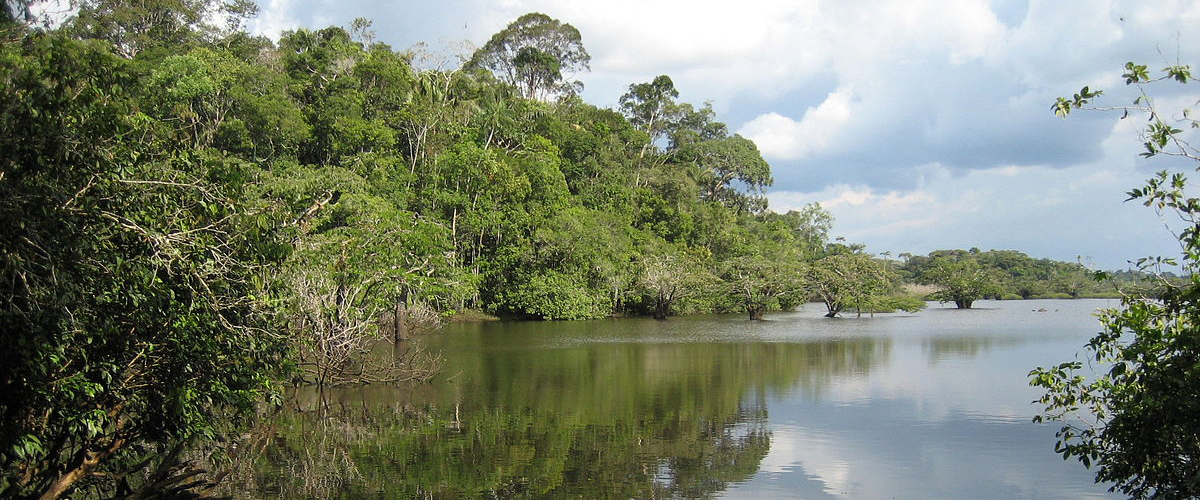The vision of Good Living from the autonomy of an Amazonian territory

Children of Morona Santiago (Republic of Ecuador) used to have the idea that our province was a giant, fruitful and leafy homeland, the mother of a thousand wonders.
This fable-like idea children had of the province lasted and lingered for a long time. No exaggeration. It lasted until one day, as young people; we began to discover that in Morona Santiago there were exiled areas of the province itself, unseen territories that had never been inhabited by human beings.
Our Amazonian province was, in short, an illusion, was not fully known. The forest was, in some ways, large and even alien to its own inhabitants. Its recent history, felt and lived, begins gradually to know and recognize itself, through its own people.
Education was the revelation: the inhabitants of the province started to appreciate with new eyes the forest, biodiversity, varied and unique fauna, rivers that flow out to the sea, moisture and oxygen. The locals found the settlers; they in turn became entranced with unexpected cultures.
Surprised to see itself for the first time in more than one simultaneous dimension, enriched and expanded, Morona Santiago lit its identity for itself and for the country.
Different peoples began to share geography and history. They began to live together. In that process, which still continues, we all understood the meaning of multiculturalism and experiential depth of the word multiculturalism.
The tired cultures of other countries are dazzled: Morona Santiago is the earthly paradise that God gave to the world. This great finding gave us Indians, settlers, missionaries and young people, the concept or evidence that states could play a leading role in the Amazonian provinces of Ecuador.
Perhaps our civic health lies in knowing how we grew. The Salesian missionaries were not only evangelizers and teachers: they were brave engineers who opened paths that still remain. The colonists, in turn, created settlements and cities. The State subsequently prompted a road that allowed the entry to the coast and highlands to the Amazon, into the heart of the province. Amazon backbone (road network) is a process underway, which aims to integrate all the provinces of the Amazon. The construction of the waterway aimed at connecting the Pacific and the Atlantic oceans, which includes the province, is not a new nor a foreign proposal. General Victor Proaño, adoptive son of Morona Santiago, was the great visionary of the waterway intended to connect two distant oceans.
In search of territorial competitiveness, the most beautiful province of the Amazon does not offer words but 2,800 km of roads for integration, for productivity, for tourism and peace.
A revealing report of the Human Development Index published by the United Nations says categorically, what we already sensed: "Today the nation state is too small for great things, and too big for little things."
For democracy to work and for prosperity to be more than pure rhetoric, the provincial government of Morona Santiago, which I currently lead, is driving a decentralization process that, in fact, adds diversity to unity. Not only that, the autonomy we promote encourages administrative probity, public oversight and territorial governance.
In Morona Santiago, we encourage the construction of social pacts to strengthen democracy, the desired transition from exclusive representation for citizen participation. We seek to create a bridge between the desirable and the possible. We dream down to earth.
We search for strategic thinking: we know that every inhabitant is a message and, therefore, need to raise the civic and ecological coefficient of all. The mere existence of laws and ordinances do not guarantee human and social coexistence.
Fruitful plurality is one of the pillars of tourism. To the magic and tenderness of the jungle, we must add what dazzles visitors and tourists the most: the rituals and expressions of two living cultures that are both reality and legend. The Shuar and the Achuar cultures. Everyone from the Amazon region, whether Indian or settler, is a mestizo.
There are thousands of symbols, reasons and mysteries, telling us that Morona Santiago’s water is the whole world’s water. No exaggeration. The people of the province know that we have a strategic territory for Ecuador. We are a border area that not only limits with Peru but is also adjacent to the Amazon: our rivers nourish the blue sea and the world's most important sweet river. We, in fact, are an ideal territory for the international economy and trade.
Our territory is ecological, touristic and free of environmental pollution. Clean and potential energy abounds. The intercultural society of our territory, rather than valuing differences, which are important, highlights the coincidences. We always put people first.
We, Shuar people, like allegories to explain the world around us. We’ll never give up legends and myths. Somewhere in the world it is said, that in hospitable and generous places, there is an ancient thread that is real but invisible. This thread unites people destined to meet, regardless of time, place or circumstance. This thread can get thin or twisted, but it never breaks.
The thread of the permanent fraternity is what has led us to raise this vision; a vision that shows what we are and what we have on an honest and open manner.
Reality cannot be a mystery and neither can hope be a consolation.
Marcelino Chumpi Jimpikit
Prefect of the Provincial Autonomous Descentralized Government of Morona Santiago
Plurinational State of Ecuador.








































































